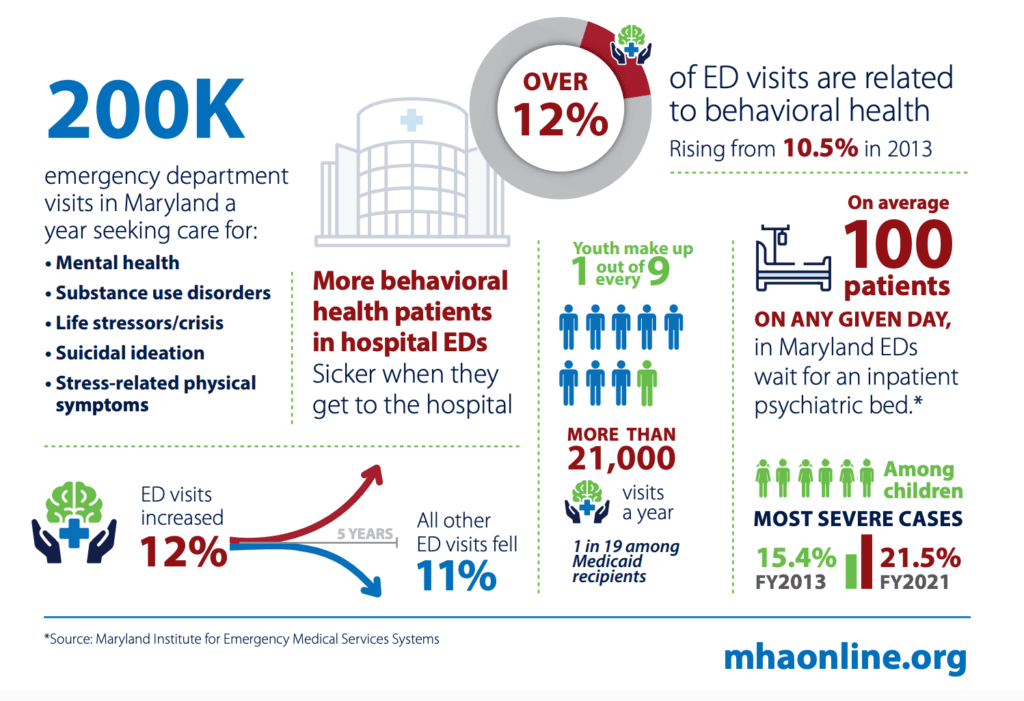
Behavioral Health
Maryland hospitals are building better systems of care throughout each community across the state in order to address behavioral and mental health concerns as well as substance abuse disorders.
The Behavioral Health Crisis in Maryland
One in five Marylanders experience mental health and substance use disorders. Hospital emergency departments (ED) are often the first point of contact or the facility of last resort for individuals experiencing a behavioral health crisis. When behavioral health patients seek care in emergency departments, data show they are sicker and may require more intense intervention.
Behavioral Health Discharge Delays
Maryland hospitals are on the front lines of the behavioral health crisis. In February 2019, MHA released a study on Behavioral Health Discharge Delays in Maryland Hospitals to better understand behavioral health discharge delays in the state’s acute care hospitals.
In April 2019, MHA’s Behavioral Health Task Force launched a study of factors that contribute to discharge delays for behavioral health patients in emergency departments.

Maryland’s Behavioral Health System of Care is Broken
A hospital emergency department is not the most appropriate care setting for most patients suffering from a behavioral health crisis–patients require a soothing setting with less stimulation and holistic care. MHA and Maryland hospitals support solutions to improve the state’s behavioral health system of care.

ED Discharge Protocols for Substance Use Disorder
MHA submitted the “Emergency Discharge Protocols for Patients with Substance Use Disorders and Opioid Overdoses in Maryland’s Hospitals” report to the Maryland General Assembly and the Maryland Department of Health in 2018. The report includes the results of MHA’s review of ED discharge protocols for patients treated for an overdose or identified as having a substance use disorder from acute care inpatient hospitals with EDs.
MHA’s Recommendations for Components of Emergency Department Discharge Protocols report also offers best practices for discharging patients with substance use disorders. These recommendations, which stem from a series of MHA clinical conversations, are related to universal screening, naloxone access, referrals to treatment, and use of non-clinical personnel.
Latest Behavioral Health News & Resources from MHA

Access Maryland Behavioral Health Resources & Services Directory
The statewide directory highlights available resources in Maryland.